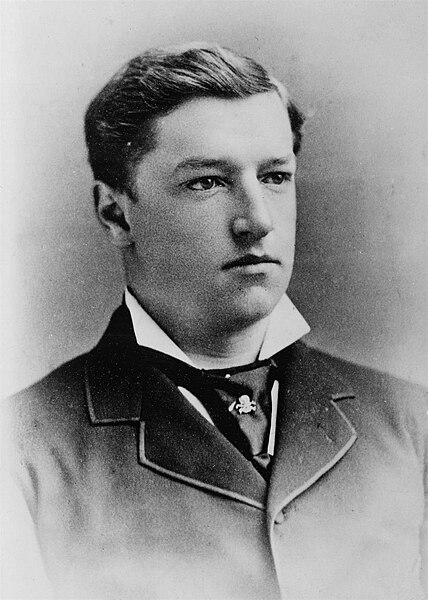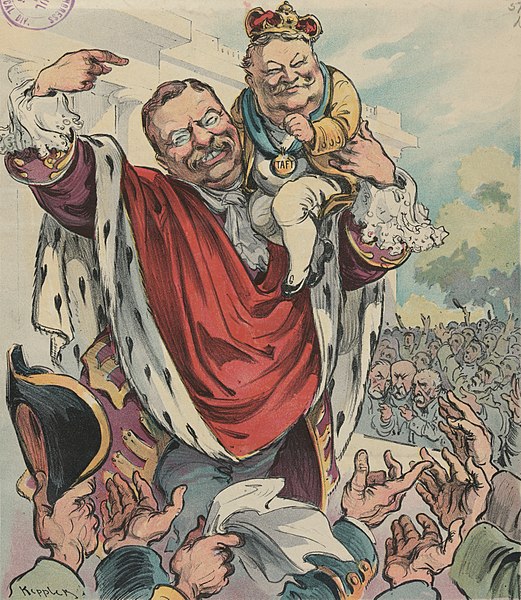Pinchot–Ballinger controversy
The Pinchot–Ballinger controversy, also known as the "Ballinger Affair", was a dispute between middle level officials in the U.S. government regarding whether or not the federal government should allow private corporations to control water rights, or instead cut them off so that the wilderness would be protected from capitalist greed. In 1909-1910 the dispute escalated to a battle between President William Howard Taft and ex-president Theodore Roosevelt. Pinchot and his allies accused Balinger of criminal behavior to help an old client of his and thus promote big business. Ballinger was eventually exonerated but the highly publicized dispute escalated a growing split in the Republican Party. Taft took control of the Republican Party in 1912, but Roosevelt started a third "Progressive" party. Both Taft and Roosevelt were defeated in the three-way 1912 presidential election, with Democrat Woodrow Wilson the winner.

Punch in May 1912 depicts no-holds-barred fight with knives and guns, between Taft (on top) and Roosevelt (dressed as a cowboy) .
Grue cartoon mocking President Taft (March 8, 1910)
Theodore Roosevelt praises Gifford Pinchot, 1914
William Howard Taft was the 27th president of the United States, serving from 1909 to 1913, and the tenth chief justice of the United States, serving from 1921 to 1930, the only person to have held both offices. Taft was elected president in 1908, the chosen successor of Theodore Roosevelt, but was defeated for reelection in 1912 by Woodrow Wilson after Roosevelt split the Republican vote by running as a third-party candidate. In 1921, President Warren G. Harding appointed Taft to be chief justice, a position he held until a month before his death.
William Howard Taft
Yale College photograph of Taft, c. 1878
Roosevelt introduces Taft as his crown prince: Puck magazine cover cartoon, 1906.
One of a series of candid photographs known as the Evolution of a Smile, taken just after a formal portrait session, as Taft learned in a telephone call from Roosevelt of his nomination for president







